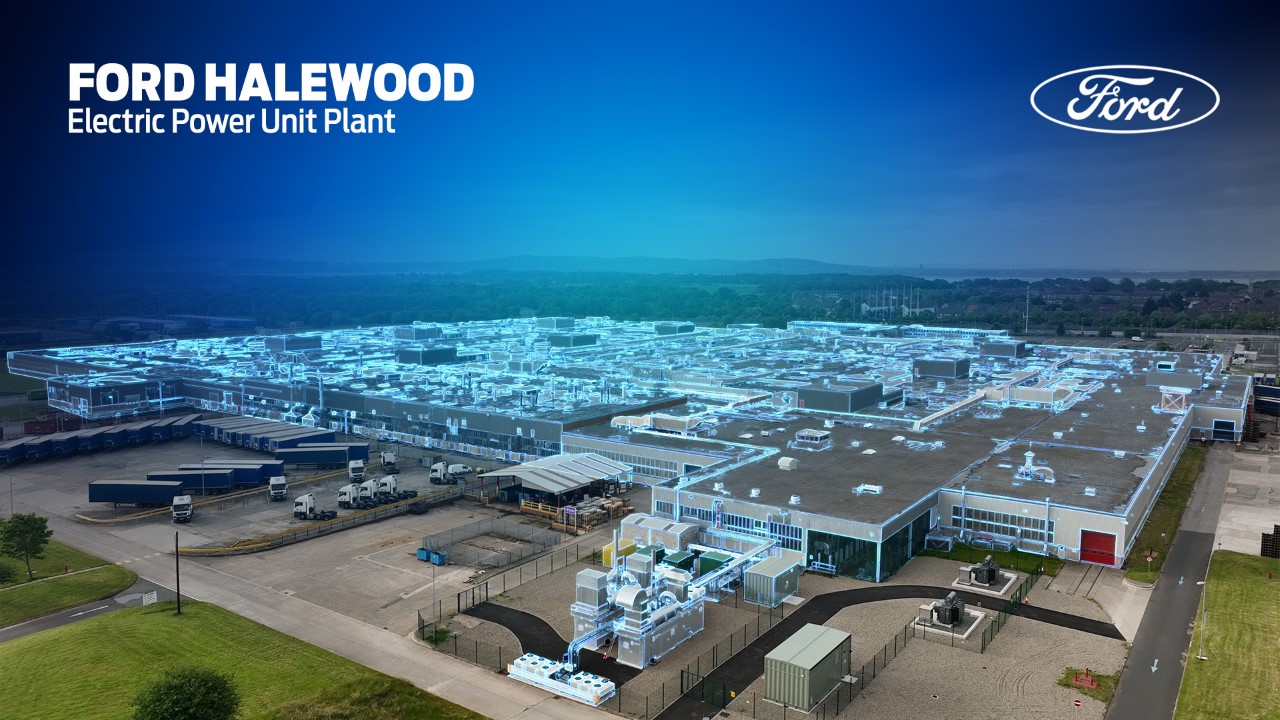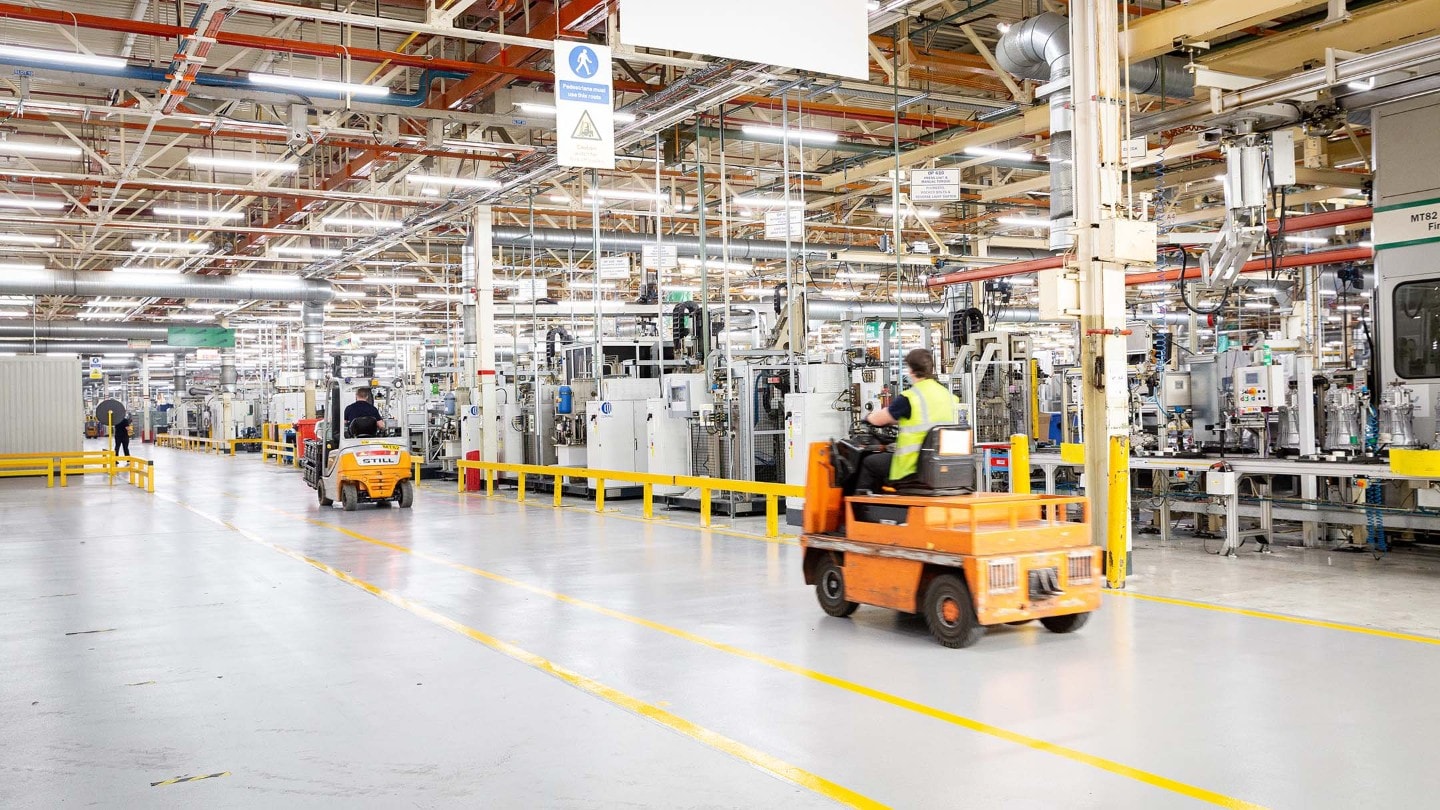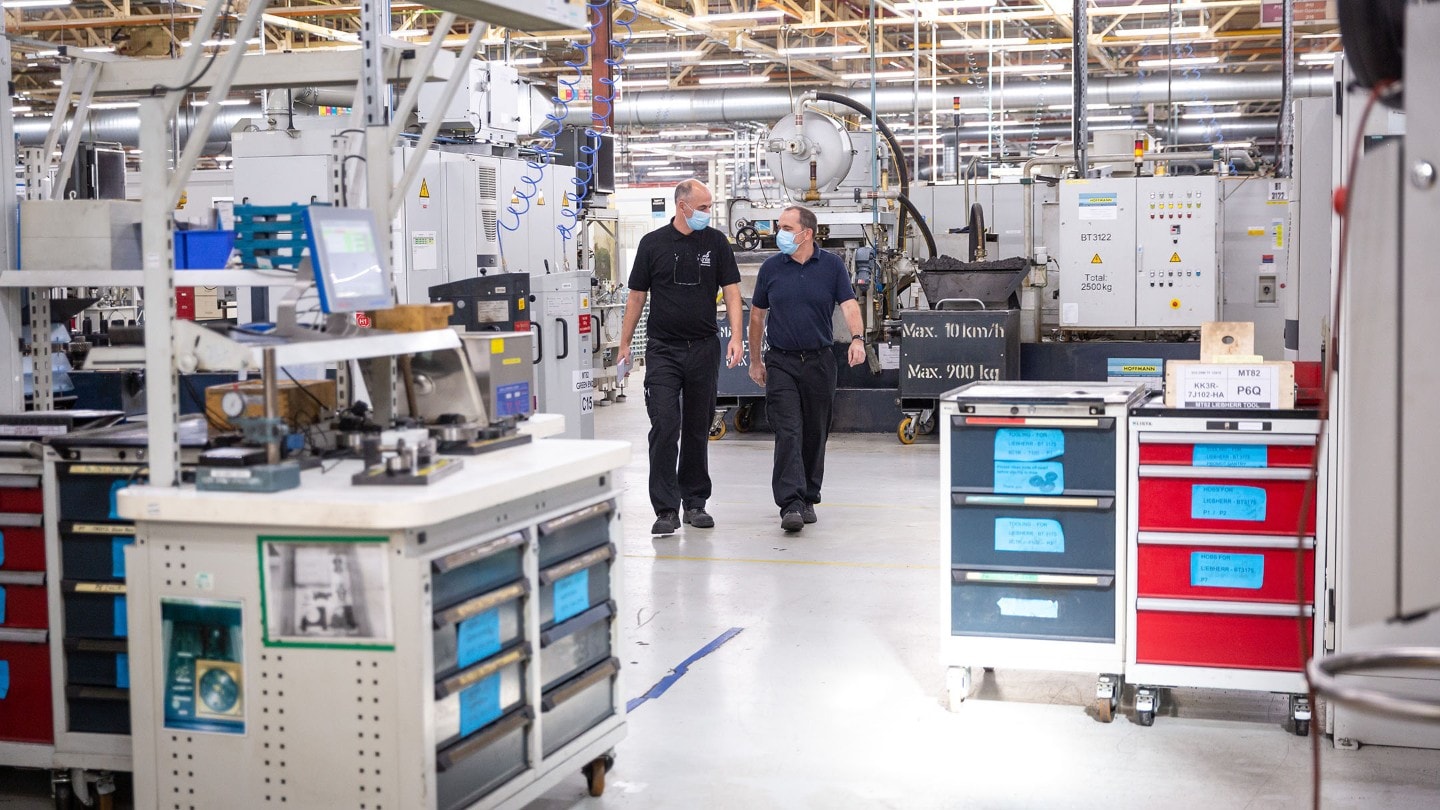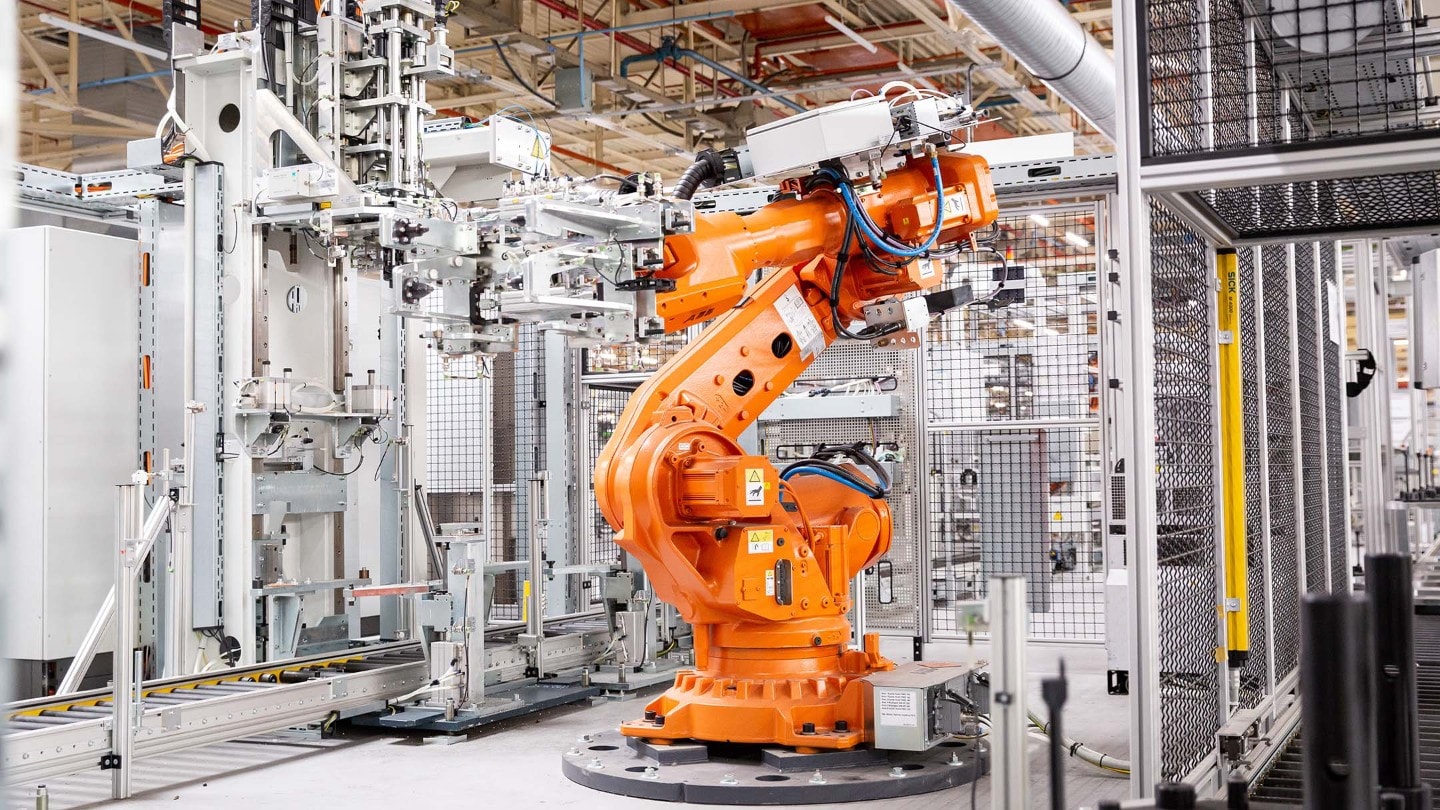Tim Slatter, chairman of Ford UK, said: “This is an all-important next step for Ford towards having nine Electric Vehicles on sale within two years. Our UK workforce is playing a major role in Ford’s all-electric future, demonstrated by Halewood’s pivot to a new zero-emission powertrain, and E:PriME’s innovation at Dunton in finalising the production processes.”
Halewood’s new power unit capacity, today raised from 230,000 to 420,000 a year – itself a 70 per cent increase – also means that 70 per cent of the 600,000 EVs, which Ford will sell in Europe a year by 2026, will be powered by the Halewood-produced technology. Ford’s EV push in Europe supports the acceleration of the company’s global plan for two million annual production of EVs in the same 2026 time frame.
The acclaimed E-Transit Custom, the electric version of Britain’s best-selling vehicle, benefitting from unique commercial vehicle support from Ford Pro; Transit Courier; Tourneo Courier; and future products will be fitted with the UK-built power units. Halewood will deliver to the vehicles’ assembly lines at Ford Otosan plants in Romania and Turkey, making up a significant share of Ford UK’s annual export value from the Merseyside plant, as well as Dagenham – currently worth £2.1 billion annually.
The latest investment – which includes government support through the Department for International Trade’s UK Export Finance facility – will help safeguard the 500 jobs at Halewood and upskill them for Ford’s EV future.
Apprentices and engineers embedded in the electric power unit development project have been part based at E:PriME in Essex, test building the power unit and implementing new skills and knowledge at Halewood as part of its transformation.




